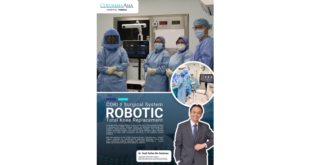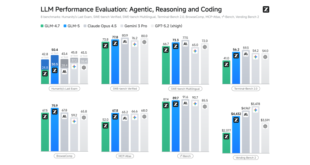HONG KONG SAR –
Media OutReach Newswire – 4 November 2024 – Breast cancer is the most common cancer among women in Hong Kong. In addition to improving treatment options for better disease management and survival rates, the medical community is increasingly prioritizing the enhancement of patients’ emotional well-being.
From left to right: Professor Angela, Leung Yee-man, Associate Head (Research) of the School of Nursing at The Hong Kong Polytechnic University; Mrs. Mary Wong-Hemrajani, Chairman of the Global Chinese Breast Cancer Organizations Alliance; Dr. Wong Lai-shan, Specialist in Clinical Oncology; and breast cancer patient Fanny. Together, they advocate for breast cancer patients to prioritize their emotional well-being.
The School of Nursing of The Hong Kong Polytechnic University (PolyU) and Global Chinese Breast Cancer Organizations Alliance (GCBCOA) jointly launched the Electronic Painting for Breast Cancer (EPBC) platform which seamlessly combines technology and art. With the support from biopharmaceutical company Gilead Sciences, PolyU and GCBCOA are conducting the first citywide study focused on breast cancer patients. Preliminary findings suggest that the EPBC has a significant positive effect on patients’ emotional health, effectively reducing feelings of anxiety and distress.
Unmanaged Emotional Distress in Breast Cancer Patients Can Negatively Impact Mental and Physical Health
In 2021, Hong Kong reported 5,565 new cases of female breast cancer. Thanks to advancements in medical treatment, the five-year survival rate for early-stage breast cancer patients has now surpassed 90%. However, research reveals that over 30% of breast cancer patients begin to experience emotional turmoil following their diagnosis, a condition that can persist throughout their treatment journey.
Furthermore, breast cancer treatments—including surgery, radiation therapy, and medication—can result in side effects such as fatigue, pain, negative self-image, and sexual dysfunction, all of which contribute to increased mental stress. The lingering effects of treatment, along with ongoing concerns about recurrence, also impact patients’ emotional well-being. Additionally, different types of breast cancer present unique challenges; for instance, hormone receptor-positive patients may face the risk of recurrence after extended periods of being disease-free, while HER2-positive breast cancer tends to grow and spread more rapidly. Meanwhile, patients with triple-negative breast cancer often have limited treatment options, all of which can create considerable psychological burdens.
Research from previous large-scale studies has revealed that breast cancer patients experiencing depressive symptoms have a mortality risk approximately 30% higher than their counterparts without such symptoms, underscoring the vital link between psychological and physical health.
Dr. Wong Lai-shan, Specialist in Clinical Oncology, emphasized, “If these distressing emotions are not adequately addressed, they can significantly affect not only the patient’s mental well-being but also their physical health, daily functioning, and social interactions.
Actively Exploring Diverse Services to Support Patients’ Emotional Needs
The emotional well-being of breast cancer patients has increasingly come into focus, prompting many organizations to provide a diverse array of comprehensive support services. Among them is the Global Chinese Breast Cancer Organizations Alliance (GCBCOA). Led by chairman,
Mrs Mary Wong-Hemrajani, a breast cancer survivor, GCBCOA offers profound insights into the physical and emotional challenges patients encounter during their cancer journeys. In addition to delivering valuable educational resources, GCBCOA offers numerous programs and activities tailored to meet the emotional needs of breast cancer patients, ensuring they receive the necessary support without falling into despair.
In June, in collaboration with the School of Nursing at The Hong Kong Polytechnic University, GCBCOA launched the EPBC platform to support members experiencing mental distress. This innovative platform enables breast cancer patients to create art using computers or smart devices while also conducting emotional assessments to better understand their emotional health. Furthermore, it includes social features that promote connection and communication among users, fostering a supportive and enriching community.
Research Confirms: Eight-Week Art Program Effectively Reduces Depression
The joint study included 52 breast cancer patients who exhibited signs of anxiety or depression during initial evaluations. Participants were randomly assigned to either an Intervention Group or a Control Group, both of which utilized the EPBC platform for eight consecutive weeks. Emotional assessment scales were administered both before the study began and after its completion, enabling researchers to evaluate the emotional impact of the EPBC platform on the participants.
Study findings highlight the benefits of the EPBC platform as follows:
1. Improved Emotional Health for Breast Cancer Patients, Particularly in Addressing Depressive Symptoms: The use of the EPBC platform significantly enhanced participants’ emotional well-being, especially in alleviating symptoms of depression. Changes in self-rated emotional assessment scores indicated an overall improvement in emotional health, with negative emotion scores decreasing by approximately 20% and the depression index dropping by nearly 30%.
2. Enhanced Self-Rated Health Assessment: Participants reported significant improvements in their self-assessment of health, reflecting an enhanced quality of life that is likely associated with better personal health conditions.
Numerous studies have demonstrated that art therapy, as a non-pharmacological treatment, effectively alleviates emotional distress. For example, painting has a positive impact on the quality of life, coping skills, and mental health of cancer patients. Throughout the art therapy process, patients are able to recognize and accept their emotions, and this emotional processing may help reduce both depressive symptoms and physical discomfort.
Professor Leung Yee-man, Associate Head (Research) of the School of Nursing at PolyU, observed that previous research has largely focused on traditional art therapies, with relatively few studies exploring the impact of electronic technology in this field. However, the findings of this study demonstrate that using computers or smart devices for artistic expression can significantly reduce depression among breast cancer patients.
Professor Leung stated, “In Hong Kong, the prevalence of smart communication devices is exceptionally high, with nearly everyone owning a smartphone. This research shows that artistic expression is no longer constrained by tools, time, or location. Smart devices empower patients to engage in creative activities anytime and anywhere, making it easier to alleviate mental stress.”
She added, “We are thrilled to see that the EPBC platforEPB is effectively helping breast cancer patients manage emotional distress and achieve positive outcomes. Moving forward, we aim to expand this initiative into hospitals and community settings to support even more individuals in need.”
Conclusion
Mrs. Mary Wong-Hemrajani concluded by urging breast cancer patients to prioritize their emotional well-being. She emphasized the wealth of resources available in society to support them, along with the many fellow survivors who are eager to share their experiences and provide companionship. She encourages patients to face their cancer journey with courage and resilience, reminding them not to retreat into isolation or despair.
Hashtag: #BreastCancer #PolyU #GCBCOA #DrCindyWong #MentalHealth #ElectronicPainting
The issuer is solely responsible for the content of this announcement.
Source link
 Odisha Samachar Odisha Breaking News , Odisha Current News , Odisha News
Odisha Samachar Odisha Breaking News , Odisha Current News , Odisha News





